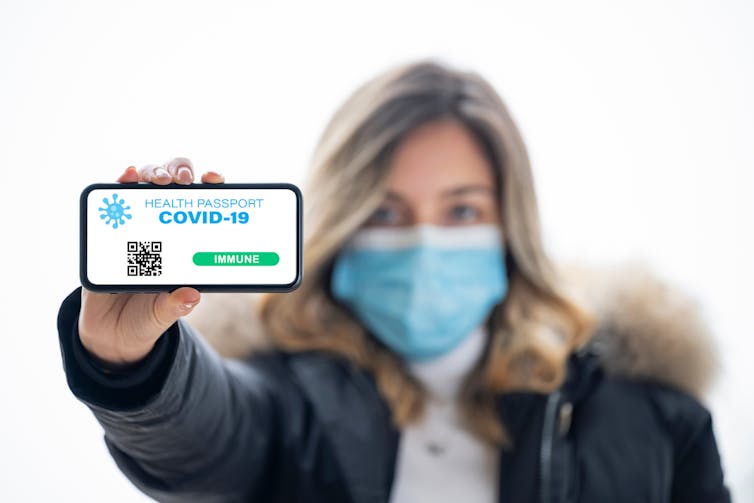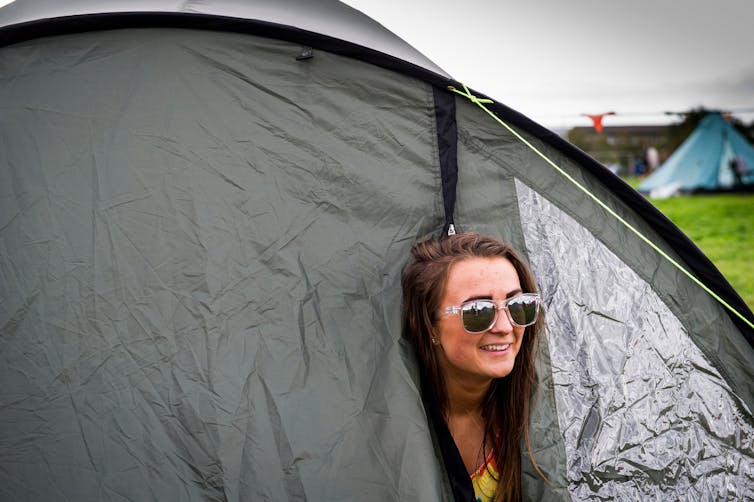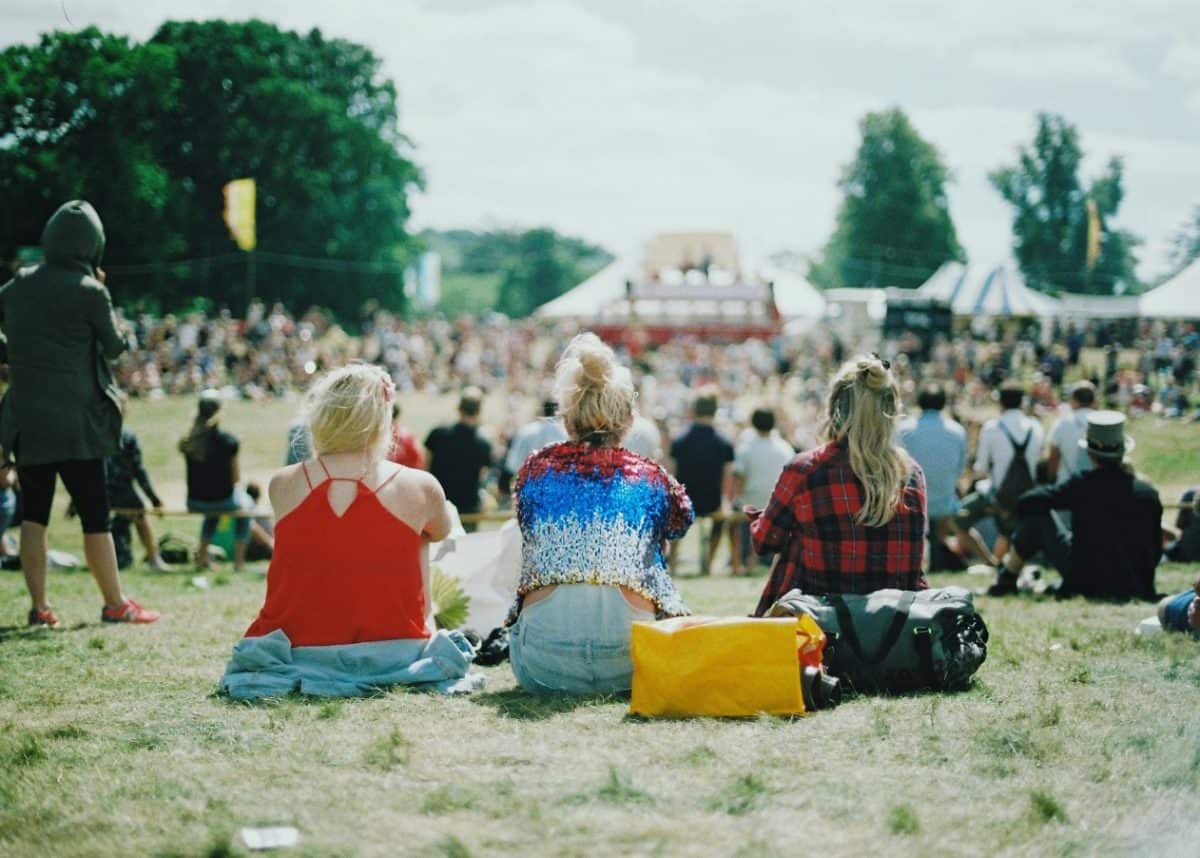Nick Davies, Glasgow Caledonian University and Daniel Baxter, Glasgow Caledonian University
Live events are set to make a welcome return as the UK moves out of lockdown in the coming months. Parklife and Wireless are the latest events to confirm that they will go ahead this year, both for September, in Manchester and London respectively. Wireless has yet to announce artists, but Parklife’s bill includes rappers Megan Thee Stallion and Dave, and electronic stars Disclosure.
Meanwhile, Glastonbury has made a U-Turn from its previous cancellation announcement by releasing details of a possible two-day “concert” in September, again with no line-up details. Other big festival brands like Reading, Leeds, Isle of Wight, TRNSMT in Glasgow and Creamfields near Liverpool are also slated to go ahead.
These announcements have been a long time coming. Sporting, music and cultural events are among the things that people have missed most during the pandemic and are most looking forward to being able to attend again.
People’s reasons for attending events like music festivals range from social interaction to a love of certain music styles. We love the escapism, the community ties that get built, and the sense of national and local pride that such events can instil in us.
Yet festivals in 2021 are going to be somewhat different frpm the ones we all know. The closeness of long queues, crammed cars, boulevards of tents and mass gatherings as your favourite performer graces the stage are unlikely to be part of the experience. So what can we expect this time around?
Vaccine passports and social distancing
Events have become viable again now that more than half of the UK population has received at least one vaccination. The impossibility of social distancing saw these events cancelled in 2020.
The much-mooted vaccine passport is viewed as a possible way around the problem. The UK government is conducting a review to decide whether everyone from pubs to airlines to outdoor gatherings will have to require people to show this proof of vaccination before coming in, or whether it might be optional.
If we do see vaccine passport requirements at festivals, it will be a huge change and is bound to be controversial. Stone Roses lead singer, Ian Brown, has already pulled out of the Neighbourhood Weekender in Warrington in September for this reason, though the festival is saying it will follow the lead of whatever the government decides in June.
If there are no vaccine passports, the rate of vaccination and the potential for second-dose shortages suggests that even by the end of summer, there will still be a need to be careful in your contact with people.

Queuing at festivals is another major area where social distancing becomes compromised. We can expect timed entries and contactless ticketing to help manage the flows of people, along with contact tracing to help organisers manage potential infection. Event venues will need to be adapted with messaging about COVID symptoms and hygiene, plus handwashing stations.
Masks are also likely to be a requirement: our perception is that they will be mandatory at festivals all the time, at least until most of the population is fully vaccinated. The only times people will probably not need to wear them is when they are eating and drinking.
There are also additional requirements for security, cleaning and marshalling people. Organisers have to at least have conversations about whether they need extra staff to maintain social distancing and hygiene. We have seen innovative and perhaps gimmicky ideas, such as the Flaming Lips bubble concert where both the band and the audience were inside inflatable balls. Whether we will see anything as innovative at UK festivals over the summer remains to be seen.
No maximum capacity?
So far, indoor and outdoor venues require different approaches to manage social distancing. For events between mid-May and June 21, which is the nominal date for all English restrictions being lifted, they are already being capped at different numbers.
There is a 1,000 cap for indoor venues and 4,000 for outdoor venues (or 50% of capacity in both cases, if that’s lower). Large events are also permitted with a 10,000-person maximum, or a 25% capacity if that number is lower.
But from June 21, in England at least, the plan is that these capacity restrictions will be lifted. No doubt this explains why many festivals are slated for the late summer: even if the June 21 date were to slip by a few weeks, these events would hopefully not be ruined.
All the same, the pandemic has had enough twists and turns that festival cancellations are still an inevitable possibility. It has been suggested by event and festival organisers that there is a need for the government to underwrite insurance in case this happens over the summer. So will the government step in?
Certainly with international travel likely to be restricted in some form for a while, the chances are that international and local demand for festivals will still not be the same as they were pre-COVID.
Travel restrictions will most certainly favour local and regional travel, and this may then mean that you will have to focus your attention on localised festival experiences. This is not entirely a bad thing as local festivals can foster community pride, and help local economies.

Getting people back into local venues for any purposes is important for local economies. Perhaps the need for us to “build back stronger” entails encouraging more attendance at local cultural events before considering mass events such as Glastonbury.
We are all looking forward to a return to live events, but will be watching with interest to see exactly how they pan out over the next few months. We encourage people to support their local festivals and events as this, in time, will support the whole sector to bounce back from the pandemic.
Nick Davies, Lecturer and Programme Leader, BA International Tourism and Events Management, Glasgow Caledonian University and Daniel Baxter, Lecturer and Programme Leader MSc International Tourism and Events Management, Glasgow Caledonian University
This article is republished from The Conversation under a Creative Commons license. Read the original article.












